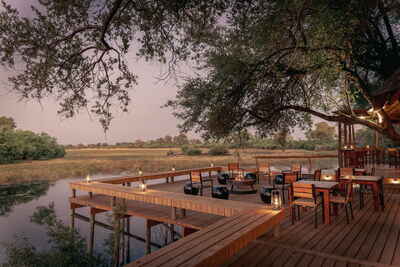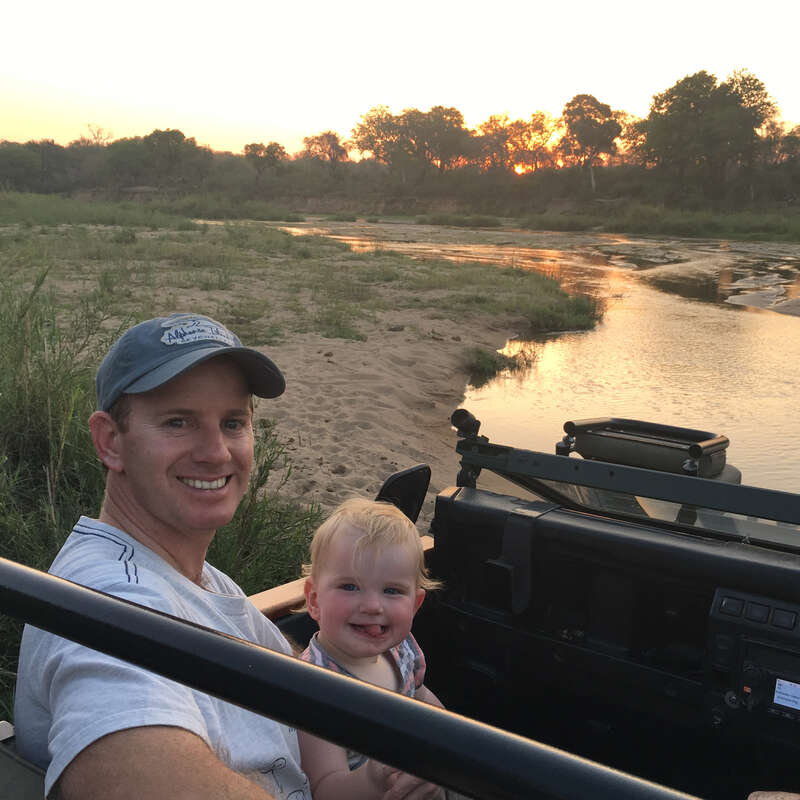About Savuti Camp
Perched above the Savuti Channel, Savuti Camp is superbly placed for watching the comings and goings of elephants.
It's in a wonderful location, too, for observing the lions that – now that the flow in the channel has once more fallen – have been drawn back to this remote area in increasing numbers.
The camp combines luxury and immersion in the wild, with stylish chalets set up on stilts looking over the channel. Wake in your four-poster bed to the sounds of the bush seeping through the mesh windows, or slide back the glazed doors and step out into this pristine environment.
The more intrepid could even spend a night sleeping out in an elevated hide above the Zibadianja Lagoon, where a shower is set up, and dinner is served – to the same high standards as in camp.
Watching elephants and other animals from camp is endlessly absorbing, whether from the camp’s main deck overlooking a permanent waterhole, from the pool deck, or from the privacy of your own veranda.
Game drives and walking safaris offer the chance to explore further afield amid the peace of a substantial private reserve. All in an area with a fascinating natural history that comes alive with excellent guiding.
Our view
Savuti Camp’s location, raised above the Savuti Channel, is unique in that wildlife comes to the camp when the channel has a very low flow. The wildlife is plentiful and varied, and the natural history of the area fascinating, brought to life with great guiding. All of this is complimented by good food, friendly staff and very comfortable rooms and communal areas. Do ensure you are by the pool deck as the day heats up; this is the best time to see the elephants.
Accommodation
7 tented chalets
Children
Best for 13+
Open
All year
Activities

4WD Safari

Birdwatching

Boat trip

Guided walking safari

Helicopter

Night drive

Private activities

Sleeping under the stars
Traveller reviews of Savuti Camp
25 real, un-edited reviews from Expert Africa's travellers.
Arrived 13 Jun 2018, 2 nights
"Savutii is special"
Overall rating: Excellent
Arrived 2 May 2018, 3 nights
"Very enjoyable stay."
Overall rating: Excellent
Arrived 19 Aug 2016, 3 nights
"Beautiful camp"
Overall rating: Good
Arrived 6 Jul 2015, 3 nights
"Savuti Camp review"
Overall rating: Excellent
Arrived 22 Jun 2015, 3 nights
"Great guiding and game viewing"
Overall rating: Excellent
Arrived 11 Nov 2014, 4 nights
"Our favorite camp!"
Overall rating: Excellent
Arrived 24 Sep 2014, 3 nights
"Savuti Camp review"
Overall rating: Excellent
Arrived 2 Sep 2014, 2 nights
"Savuti Camp review"
Overall rating: Excellent
Arrived 2 Jun 2014, 2 nights
"Savuti Camp review"
Overall rating: Good
Arrived 22 May 2014, 2 nights
"Loved it!"
Overall rating: Excellent
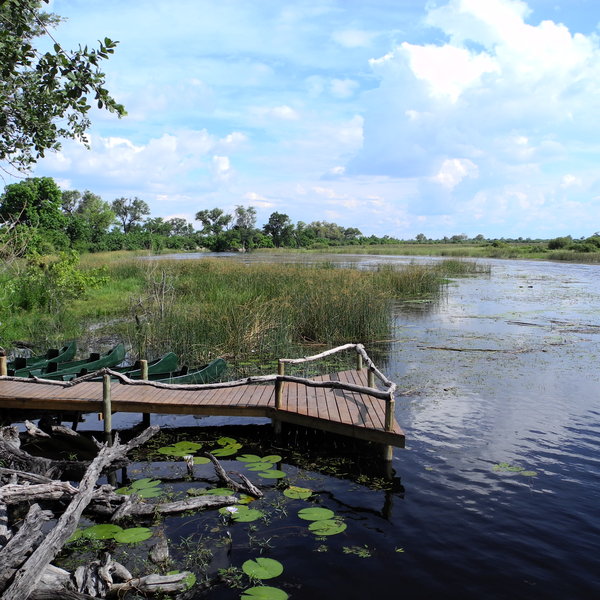
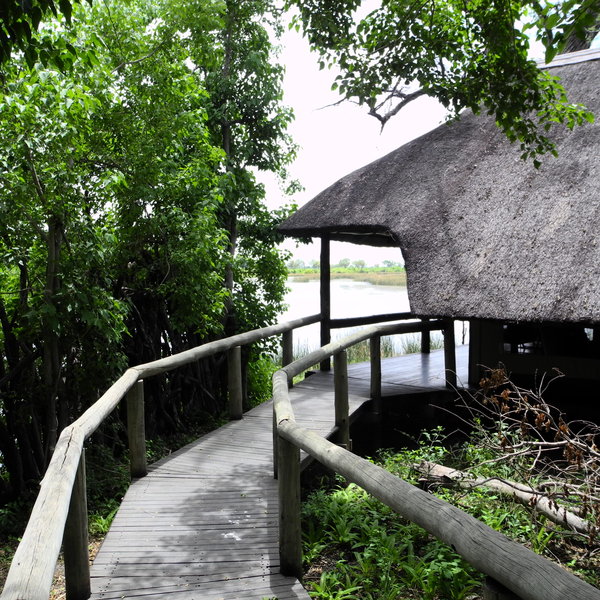
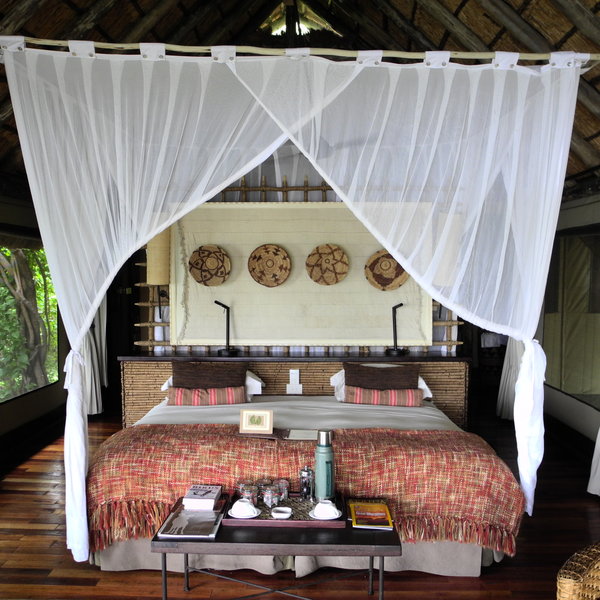
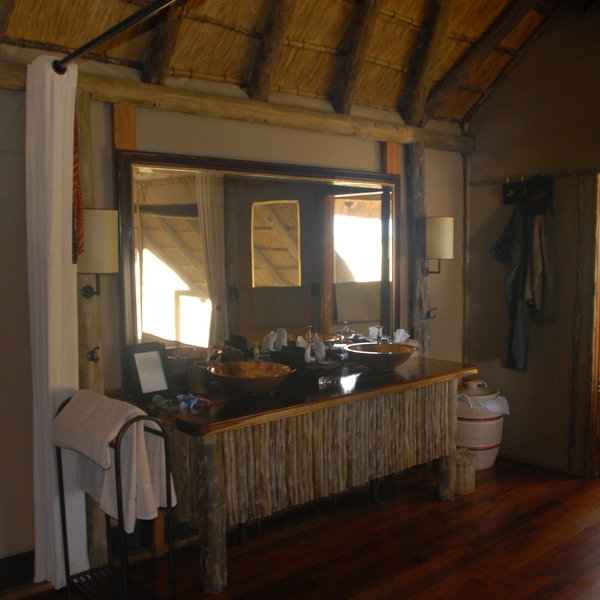

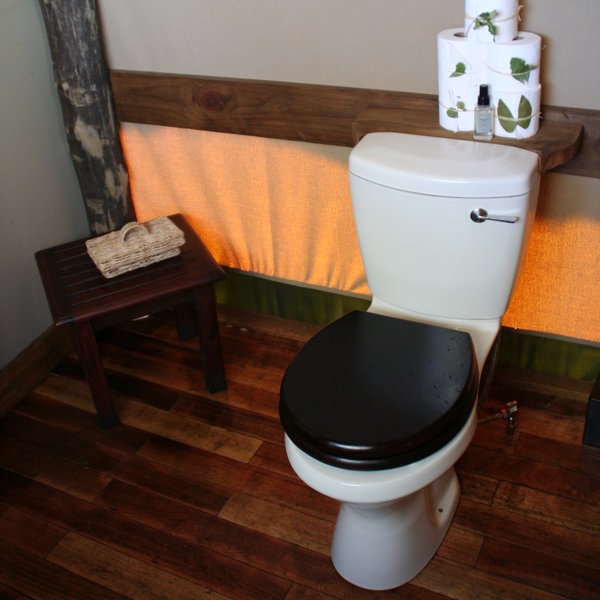
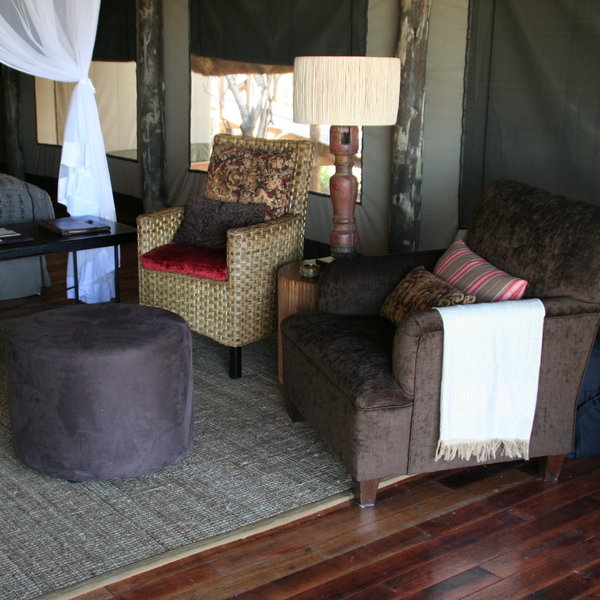
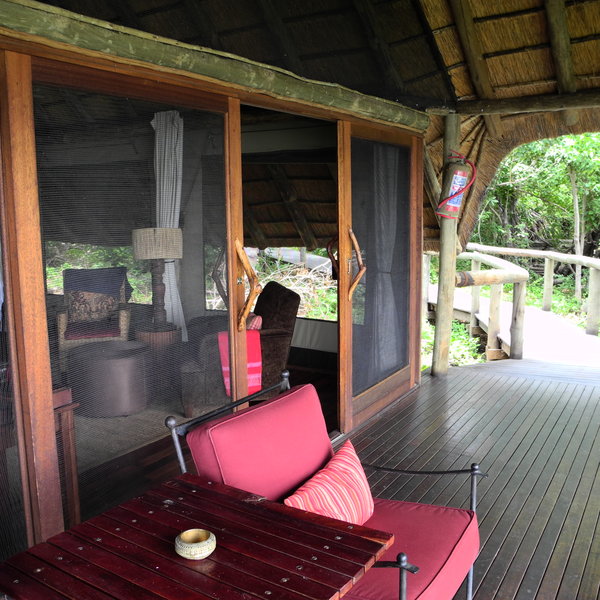

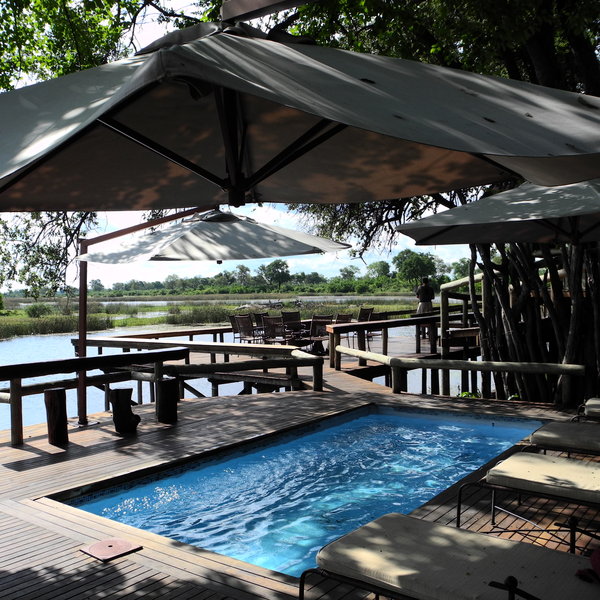
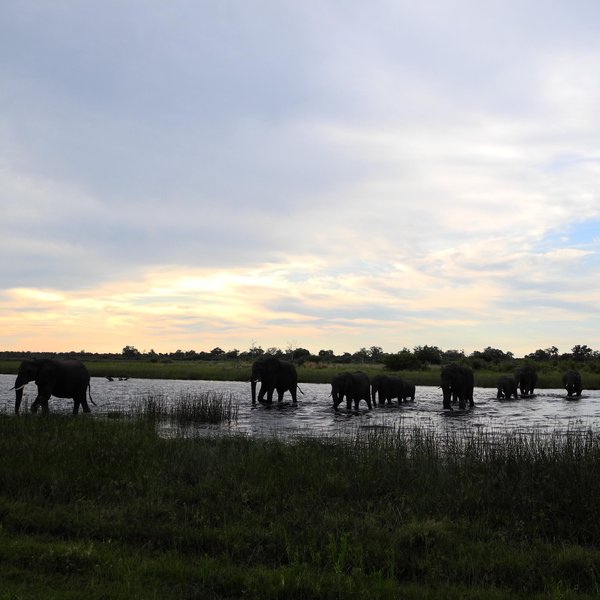
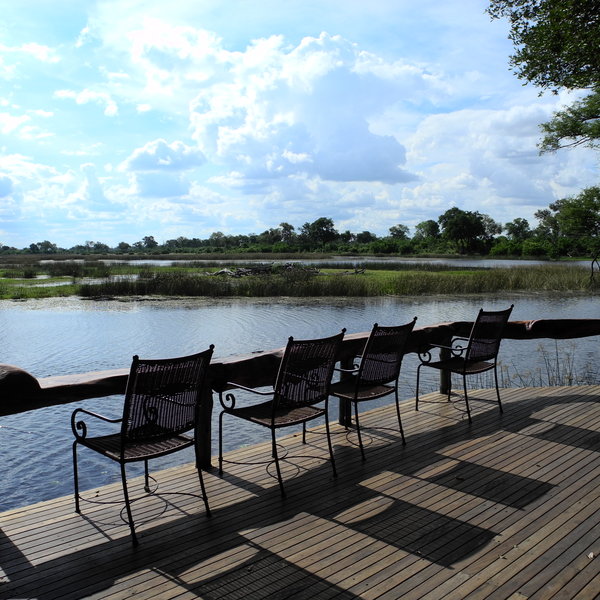
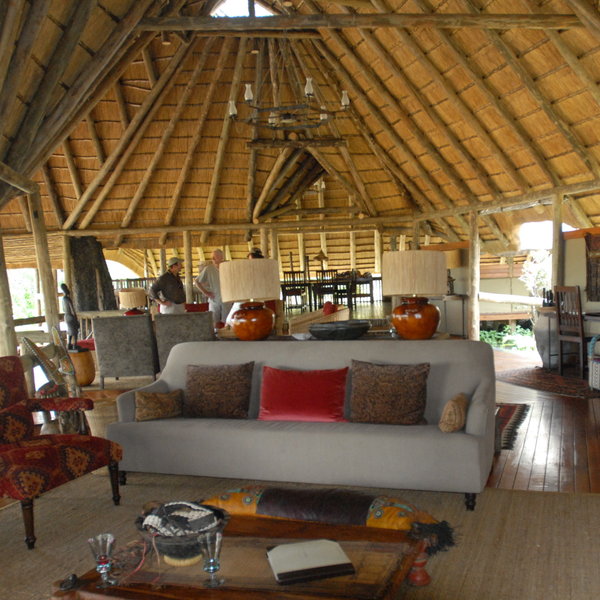
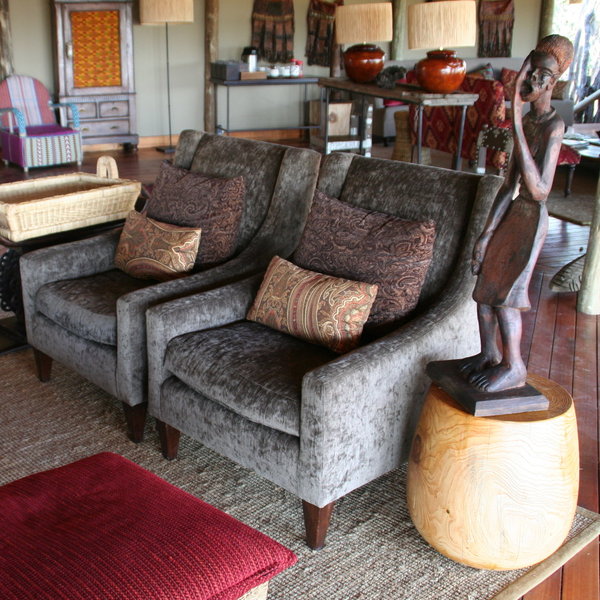
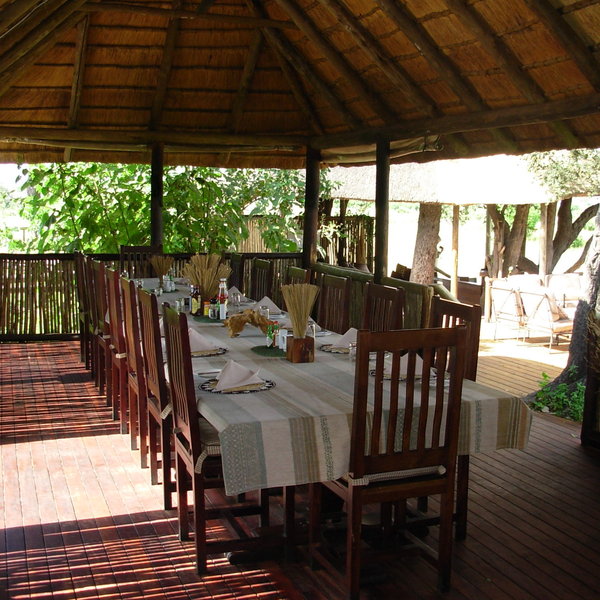
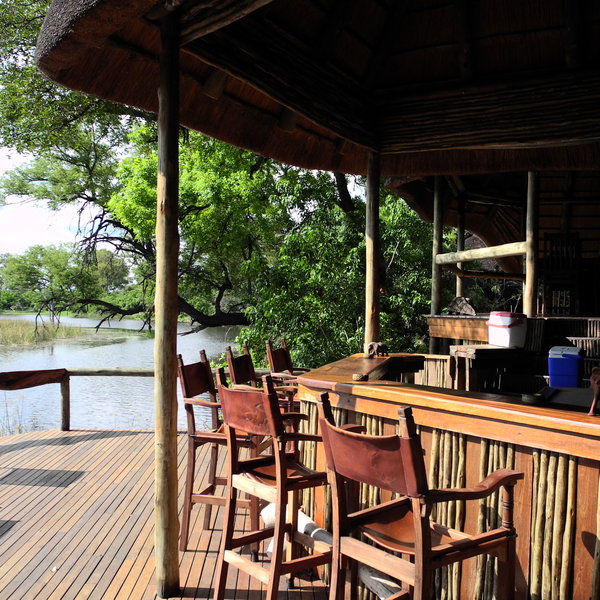
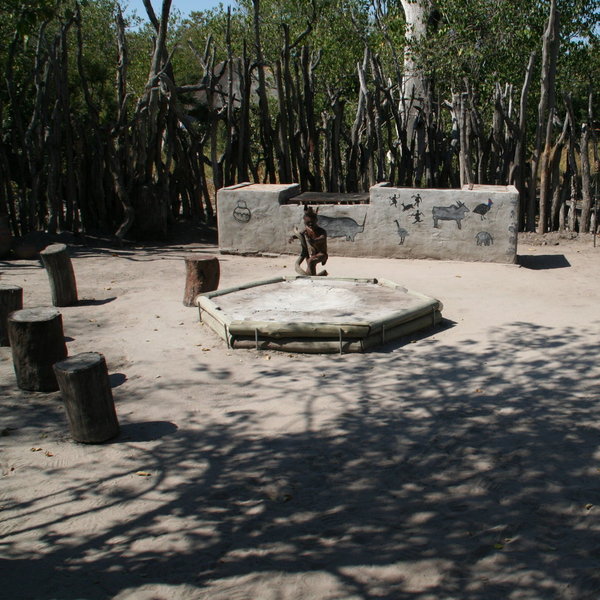

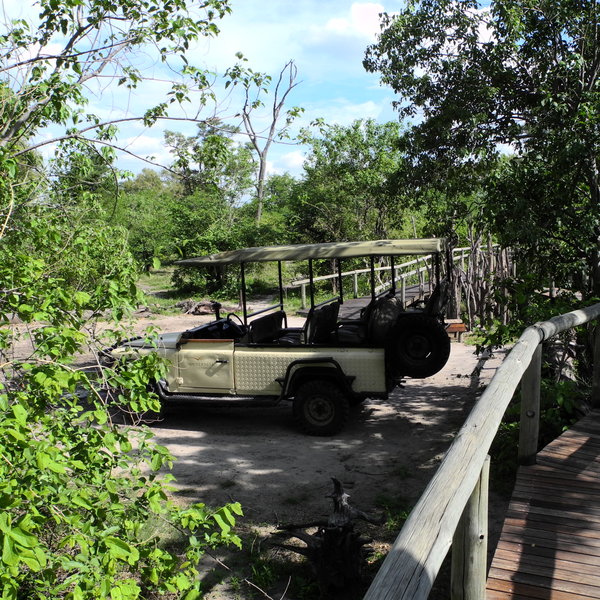
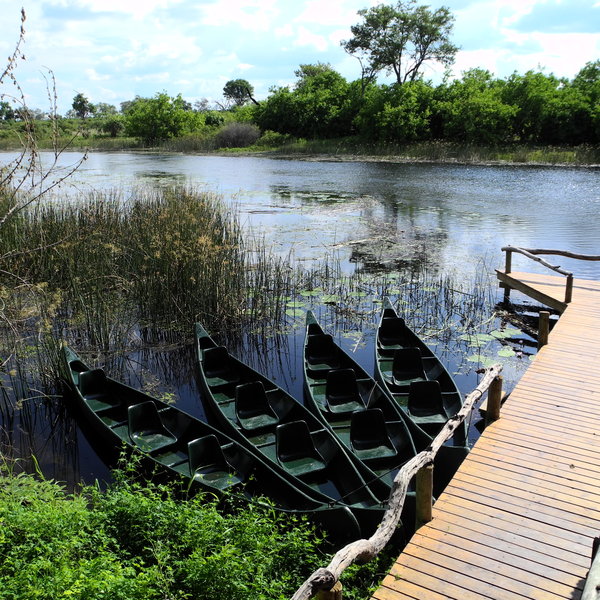
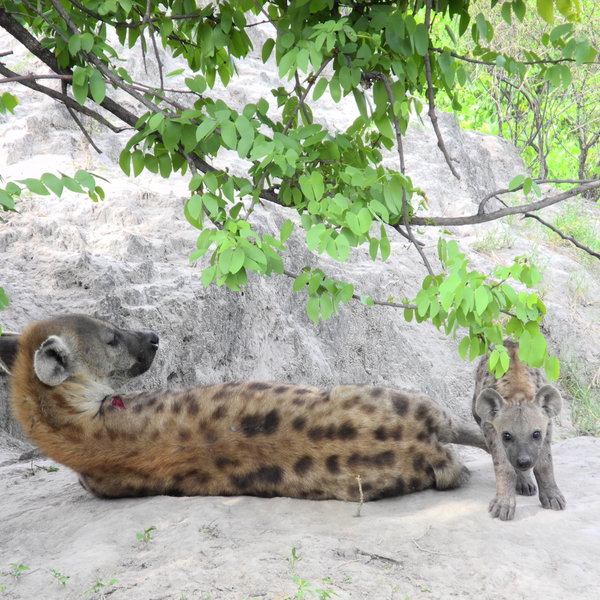
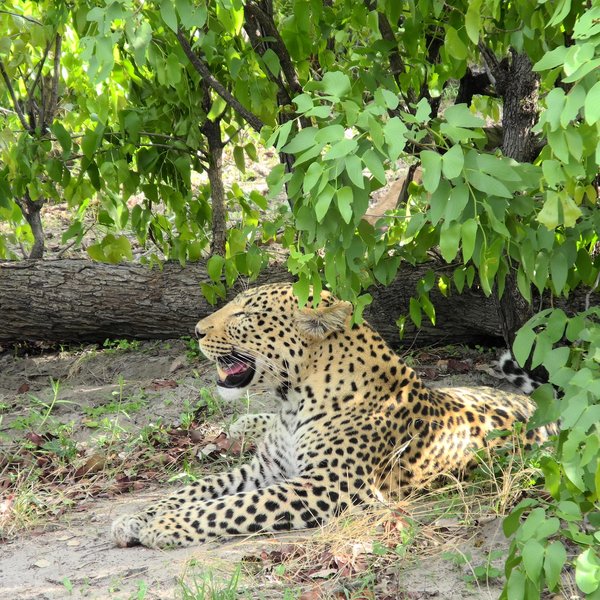
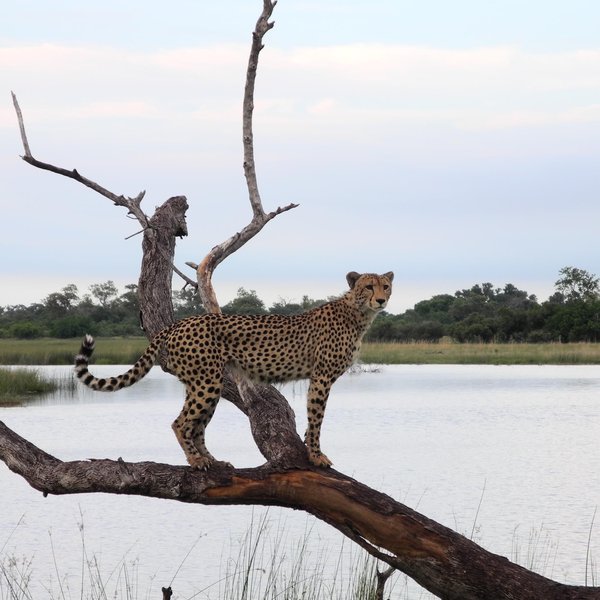
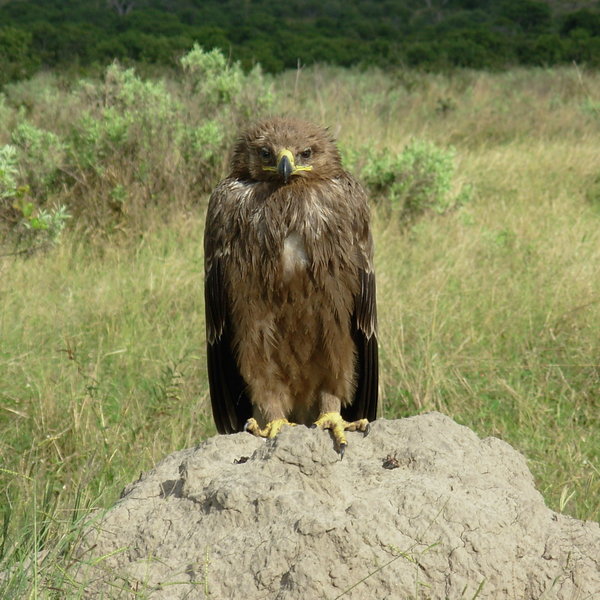
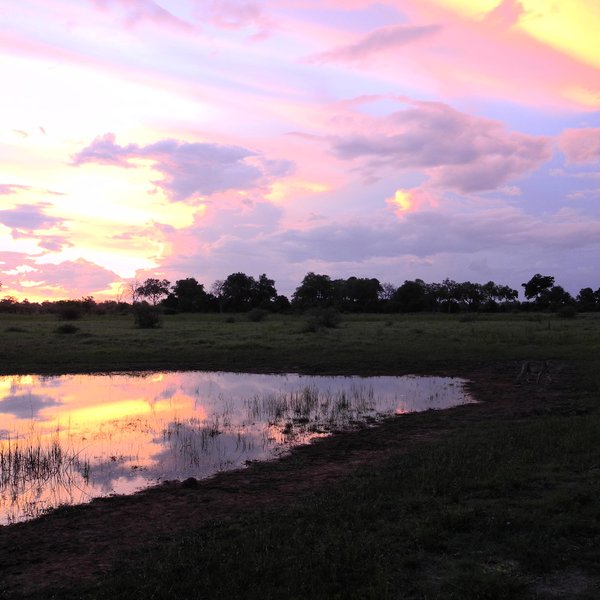
Expert Africa's gallery
When we travel we take lots of photos ourselves to give you a real and un-edited view of the safaris. See our 59 pictures of Savuti Camp to get the candid view.
View gallerySafaris visiting Savuti Camp
Just ideas, we'll always tailor-make a trip for you
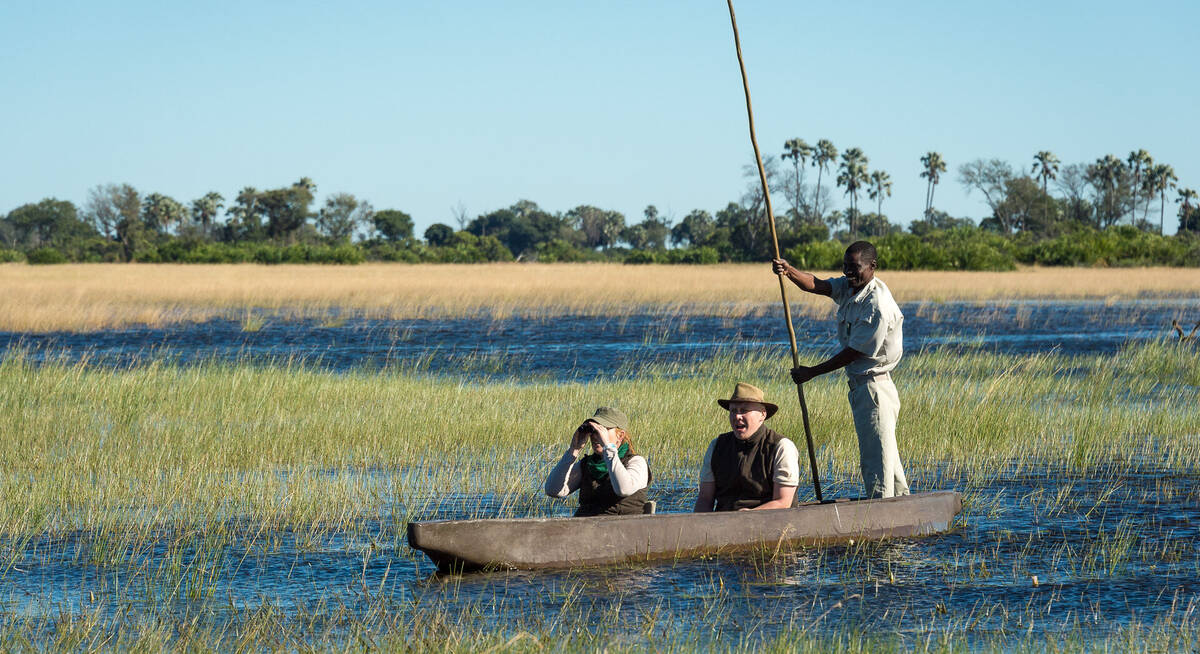
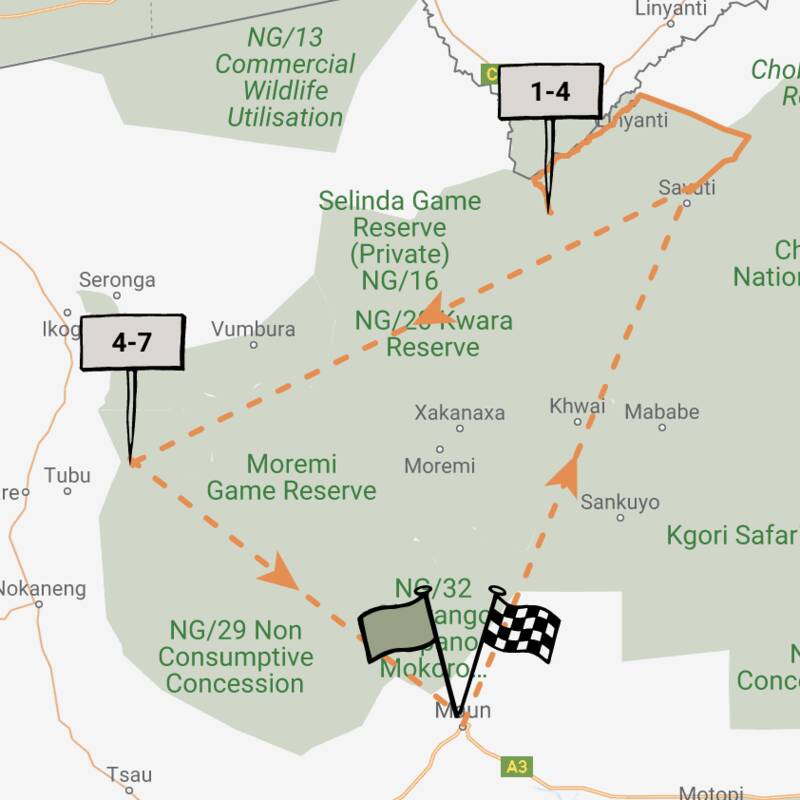
Spotted-necked Otter Safari
6 days • 2 locations • 1 country
MAUN AIRPORT TO MAUN AIRPORT
Discover the heart of the Okavango Delta and diverse Linyanti, staying in two classic luxury canvas camps in private reserves this is a varied, wildlife-filled safari experience.
Visiting Okavango Delta, Kwando-Linyanti
US$9,950 - US$14,800 per person
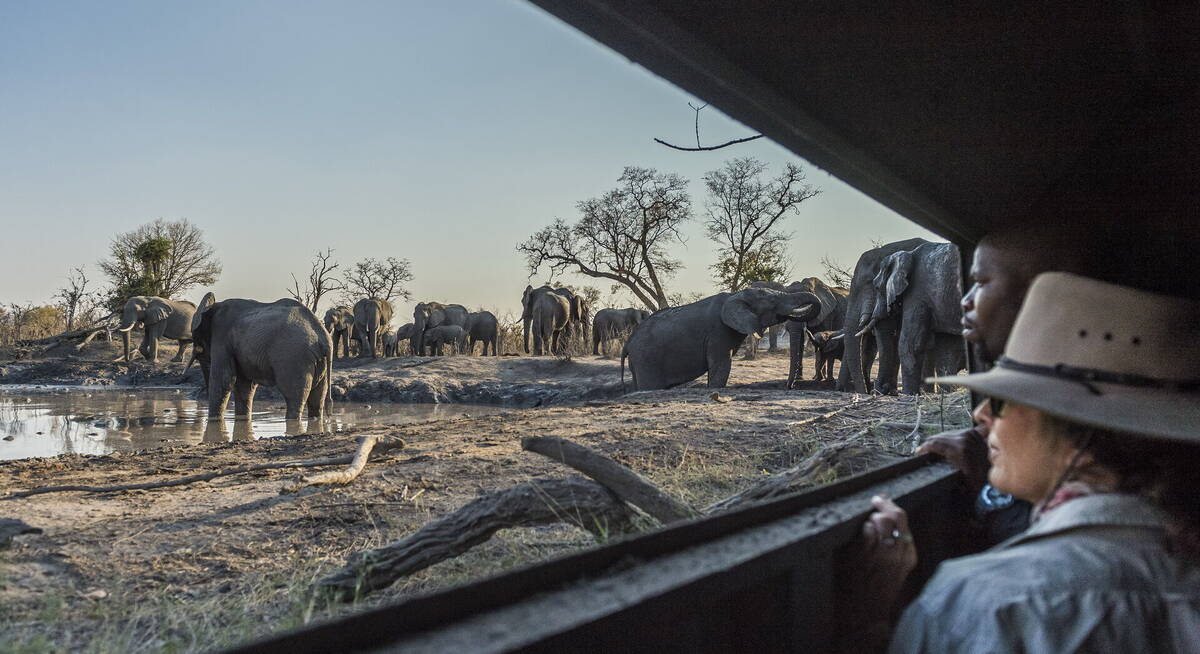
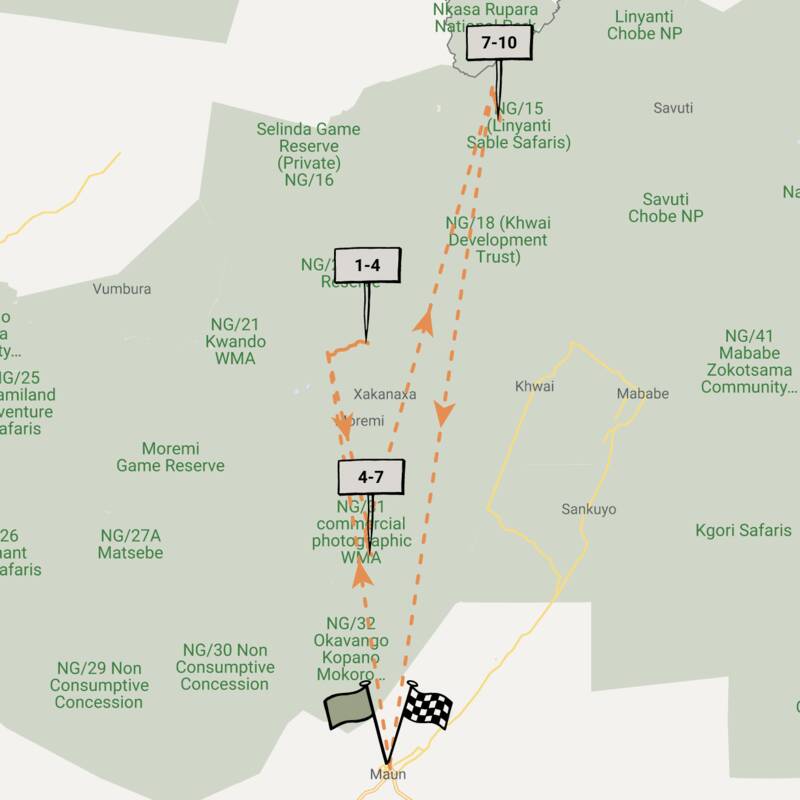
Large-spotted Genet Safari
9 days • 3 locations • 1 country
MAUN AIRPORT TO MAUN AIRPORT
A luxury safari exploring the Okavango Delta and Linyanti–Savuti, two of the best wildlife viewing areas in Botswana, staying at three top camps renowned for their guiding for a first-class experience.
Visiting Okavango Delta, Kwando-Linyanti
US$14,230 - US$23,640 per person
Savuti Camp: Our full report
Savuti Camp is about 30km due west of the Savuti Marsh, and the famous Savuti area of Chobe National Park.
It stands within the private 1,250km² Linyanti Reserve, on the edge of the Savuti Channel, whose water levels fluctuate over the years. The camp is elevated above the channel, giving views from every area of the wildlife drawn to the water.
In the north, beside the Linyanti River, the environment is like the Chobe riverfront: open floodplains beside the water, an adjacent band of riverine forest, and then dense (mostly mopane) forests stretching away south.
Over the last thirty years, as the Savuti Channel has experienced years of strong flowing waters, Savuti Camp has fluctuated from being on the edge of a "dry riverbed" and "away from any flowing rivers" to a camp that was able to offer boating activities. With the water flow now reducing again, it’s an ongoing process; on our visit in September 2024, the Savuti Channel was a mere trickle – yet the wildlife viewing from camp can be excellent.
Having been totally rebuilt in 2007, just before the channel filled again, the camp was rethatched in December 2024. Over the years, we have been very impressed by the layout. We also enjoy watching a fairly steady stream of elephant herds, day and night, as they move towards the water to drink.
Savuti Camp’s seven tented chalets (including a family unit consisting of two en-suite bedrooms, each with its own separate entrance, and a shared outdoor deck) are set up on stilts a couple of metres above the bank that leads down towards the water. Each provides a very private setting, with a good-sized viewing deck and a couple of comfortable chairs from where to watch the river and the animals that frequently move through camp on their way to the water's edge. We would recommend chalets four or seven for the best elephant experiences.
Wooden poles supporting a thatched roof form the outer shell of each chalet, supporting a canvas-sided tent with sliding doors, large mesh windows, and wooden flooring that extends onto the deck. The windows allow a cooling breeze to pass through, while canvas flaps can be raised on cooler evenings.
At the centre of the bedroom is a large four-poster bed draped with mosquito netting and set beneath a ceiling fan, with a bedside control panel. A couple of very comfortable armchairs, along with a table and footrest, are complemented by a tea and coffee station and a few reference books. The rooms are very well-lit, with both bedside lamps and good main lighting, but we felt that some of the softer furnishings could do with a refurbishment.
A central canvas and wood partition separates the bedroom from open-plan bathroom. Here you’ll find a walk-in shower, his and hers sinks and a separate toilet reached through a door leading off the side of the building.
Raised wooden walkways connect the chalets with the main lodge building. A large, open-sided, wooden structure crowned by a high thatched roof, this is decorated with traditional Botswana basketwork and other local artefacts. Guests can purchase baskets following a basket-weaving demonstration that is set up just before high tea, and from the small curio shop.
Comfortable chairs and sofas, and a good library, make up the spacious lounge area. The dining area, with a bar, gives each guest a view of the channel while they eat.
We loved the sizeable viewing deck which overlooks a permanent waterhole (where breakfast is usually served), and where there's a small, shaded swimming pool with sunloungers. There is also a firepit where fires are lit in the morning and evening. Wildlife can often be seen coming down to the water to drink and elephants often cross from one bank to the next not far from the main area.
Activities at Savuti Camp revolve around 4WD game drives up and down the Savuti Channel and into the surrounding mopane woodlands (although generally this vegetation is less productive for game-viewing). Fishing and boating are also available, depending on water levels.
As Savuti Camp is in a private reserve, night drives and off-road driving are allowed, and qualified guides may lead walking safaris. (Do not confuse this area with the area around Savuti Marsh, within Chobe National Park – which operates according to national park rules, and where such activities are not permitted.)
As the water into the Savuti region fluctuates, so does the wildlife. When there was a wide, flowing channel, this altered the entire dynamic of the area as animals were able to disperse over a wider area with a more readily available supply of water to support them. As a result, the Savuti, which had gained a name for large prides of lion in the past, saw an increase in numbers of other predators as the lion prides followed the game and their density decreased.
Come September 2024, however, we were overwhelmed with lion encounters, the most notable being a dominant male chasing a young sub adult with incredible intensity. We also enjoyed a glimpse of a sable antelope from the camp. But it was the constant ebb and flow of elephants to the water’s edge, particularly in front of the camp, that really left us spellbound.
Guests spending three nights at Savuti Camp have the exciting option of pre-arranging a night sleeping out in the elevated hide that overlooks the Zibadianja Lagoon. During the afternoon, guests are driven to the hide where a bed, complete with mosquito net, and shower facilities are set up and dinner is served. A guide sleeps nearby for added security.
Geographics
- Location
- Kwando-Linyanti area, Botswana
- Ideal length of stay
- We'd recommend a three-night stay at Savuti Camp to ensure you get the most out of your visit.
- Directions
- Guests fly in to Savuti Airstrip, which is towards the north end of the Savuti Channel. It is then about a 30-minute road transfer, depending upon what you see on the way.
- Accessible by
- Fly-and-Transfer
Food & drink
- Usual board basis
- Full Board & Activities
- Food quality
- On our last visit in September 2024, we found that the meals were of a very good standard. The camp can comfortably cater to vegetarians and any other special dietary requirements if notice is given.
Mealtimes follow the usual safari-camp format, with a light breakfast served at around 6.00am before your morning game drive, brunch served at around 11.00am on your return, tea at 4.00pm before your evening activity, and then a three-course dinner, usually at about 8.00pm.
You can pick and choose your breakfast, from a selection of cereals, fruit, yoghurt and muffins. On our last visit there was also a station where you could choose between freshly made sweet or savoury pancakes.
Brunch is served buffet-style, with soup, various salads, cold meats, fresh bread and savoury dishes such as quiche. On our last visit we enjoyed spare ribs, chicken, noodles, broccoli and pea salad, butternut and lentil salad, and homemade bread.
At tea time you will be tempted by delicious snacks such as shortbread and mini pizza. Iced tea or coffee and freshly made lemonade are also on offer, as well as hot drinks.
We had a delicious dinner of short ribs, chicken and citrus mushroom rigatoni with green salad, a rice and tofu salad. Dessert was a coconut and pineapple fool. On Monday night guests dine in the boma, a traditional circular enclosure with no roof and often a fire in the middle. We were treated to a variety of local dishes – fish, chicken and beef – accompanied by a variety of vegetables prepared in a traditional way. - Dining style
- Group Meals
- Dining locations
- Indoor and Outdoor Dining
- Drinks included
- Drinks are included, except for champagne and premium-brand spirits.
Purified drinking water is available, with reusable drinking water bottles provided to reduce the use of plastic water bottles.
Special interests
- Birdwatching
- For birdwatchers in Botswana, Savuti Camp can be outstanding, ranging from Okavango species to those of the drier mopane woodland. The Savuti Channel has a high concentration of raptors and is internationally recognised as an Important Bird Area.
- See ideas for Birdwatching in Botswana
- Photography holidays
- When the Savuti Channel is low, the wildlife concentrates in great numbers at Savuti Camp, allowing for some stunning wildlife potential, particularly elephant and lion. The camp’s logpile hide adds further appeal for photography in Botswana.
- See ideas for Photography holidays in Botswana
Children
- Attitude towards children
- Children who are 6 years old and above are welcome, although families bringing children who are between the ages of 6 and 12 must hire a private vehicle.
- Property’s age restrictions
- Families with children between the ages of 6 and 12 must hire a private vehicle.
- Special activities & services
- Special meals can be prepared for children.
- Equipment
- No special equipment is provided.
- Generally recommended for children
- Yes, as Savuti has a family room. Parents must supervise children at all times, however: this is a dangerous game area, there are no fences, and there are high walkways around camp.
- Notes
- Parents must keep all children under close and constant supervision as dangerous animals can wander through this camp at any time.
Our travellers’ wildlife sightings from Savuti Camp
Since mid-2018, many of our travellers who stayed at Savuti Camp have kindly recorded their wildlife sightings and shared them with us. The results are below. Click an animal to see more, and here to see more on our methodology.

100% success

100% success

100% success

100% success

100% success

100% success

100% success

100% success

50% success

0% success

0% success

0% success

0% success

0% success

0% success

0% success
Communications
- Power supply notes
- There is a back-up generator.
- Communications
- The camp has WiFi in the chalets and the main office can be contacted via radio in an emergency.
- TV & radio
- No
- Water supply
- Borehole
- Water supply notes
- All rooms have plumbed hot and cold running water.
Sustainability
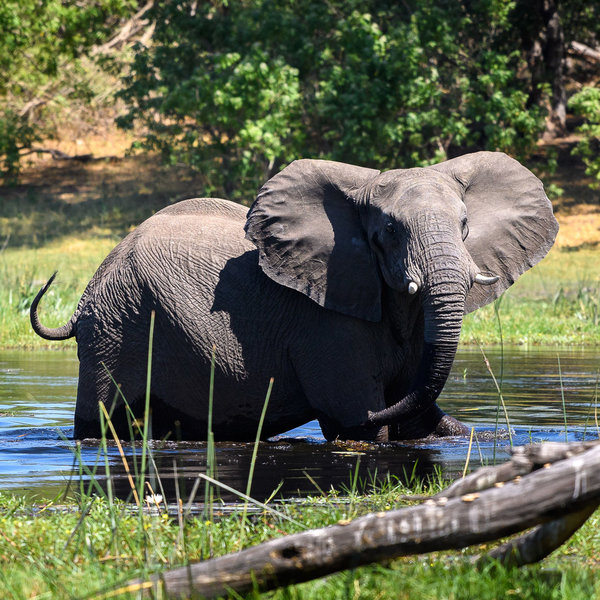
Protecting the environment of Linyanti Reserve
The owners of Savuti Camp, Wilderness Destinations, have implemented measures to reduce its footprint, including ozone water purification, and to protect endangered species.
Research is carried out on species on the IUCN Red List such as the African wild dog, elephant, lion and roan antelope. As Savuti Camp is no stranger to the human-elephant conflict, the camp has facilitated and helped fund two MSc studies researching the challenges of this issue and the impact of elephants on vegetation, other animal species and local villages.
See more great sustainability projects in Botswana
Health & safety
- Malarial protection recommended
- Yes
- Medical care
- Camp managers and guides are first-aid trained, and a comprehensive medical kit is kept on site. Wilderness Safaris also have their own nurse based out in camps in the bush, who is on call to give advice if a guest falls ill. Guests can be flown out to the nearest doctor in Maun in the event of an emergency. Please note that it is only possible to fly out of camp during daylight hours as the bush airstrips do not have any lighting at night.
- Dangerous animals
- High Risk
- Security measures
- Alarms are provided in the rooms for sounding in the event of an emergency.
Guests are also escorted to and from their rooms after dark. - Fire safety
- Fire extinguishers are kept on the balconies of all chalets and in the main areas.
Activities
4WD Safari
Birdwatching
Boat trip
Guided walking safari
Helicopter
Night drive
Private activities
Sleeping under the stars
Extras
- Disabled access
- On Request
- Laundry facilities
- Included
- Money
- All rooms are equipped with electronic safes.
- Accepted payment on location
- US dollars, UK pounds, South African rand, euros and Botswana pula are all accepted. Guests may also pay for curios with Visa or Mastercard at no additional charge.
Plan and book your trip with Expert Africa
All of our trips are tailor-made, so we'll always adapt them to suit you. Talk to an Expert and let us plan and arrange your perfect trip.

Talk to an Expert
Call or email us now! We’ll match you with the Specialist in our team who is best suited to help you. Then together we can start planning your trip.

Set up your itinerary
Based on our experience and your ideas, your specialist will create a detailed, costed itinerary. We’ll refine it together, until we have a trip that you’re perfectly happy with.

Prepare for your trip
The same Specialist will make the seamless arrangements for your trip, send you detailed travel documents, and be available to answer any questions before you depart.

Travel with peace of mind
After you set off, you’ll be cared for by our partners in Africa, most of whom have worked with Expert Africa for decades. And if you ever need us urgently, we’re available 24/7.

When you return
We love to learn about your trip, and so will always be grateful if you’ve the time to give feedback to your Specialist when you return.
Savuti Camp's location
Look closer at the environment and surroundings of Savuti Camp.
Excursions from Savuti Camp
Optional extra day-trips and excursions possible whilst you're staying at Savuti Camp. Talk to us: these are usually best arranged before you go.
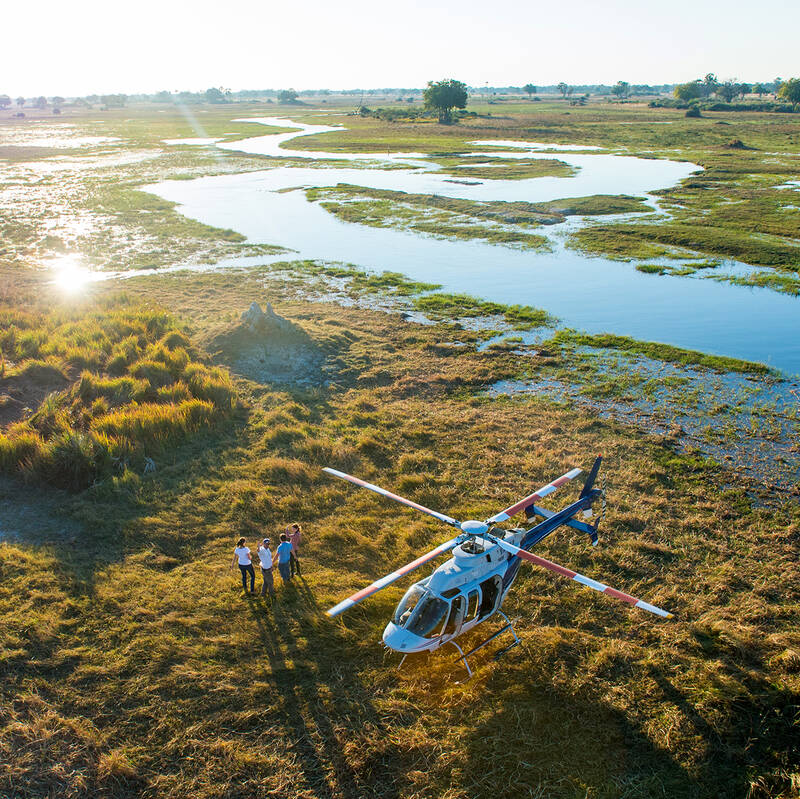
Helicopter Flight - Botswana
Various: from 30 minutes to half a day.
Low-flying, agile and offering superb views, helicopters are an ideal way to move around the Okavango Delta.You can use them instead of fixed-wing inter-lodge transfers or as an addition to other wildlife watching activities, and of course, helicopters can hover to allow that perfect pic, whereas fixed-wings can’t.
More about Helicopter FlightOther lodges in Kwando-Linyanti area
Alternative places to stay in this same area.
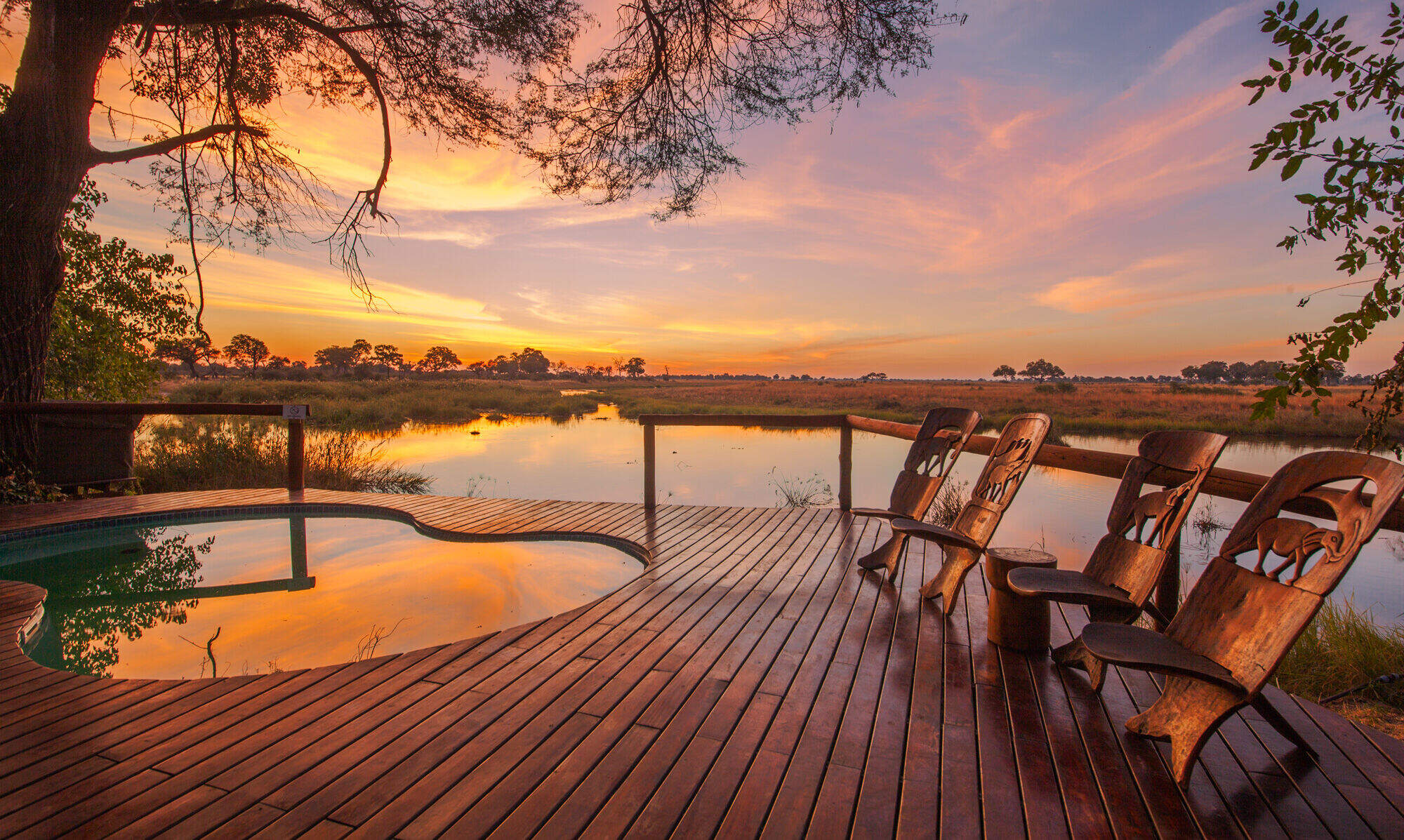
Lagoon Camp
Within the vast Kwando Reserve, renowned for its wild dogs, Lagoon Camp offers excellent game viewing that focuses on predators.
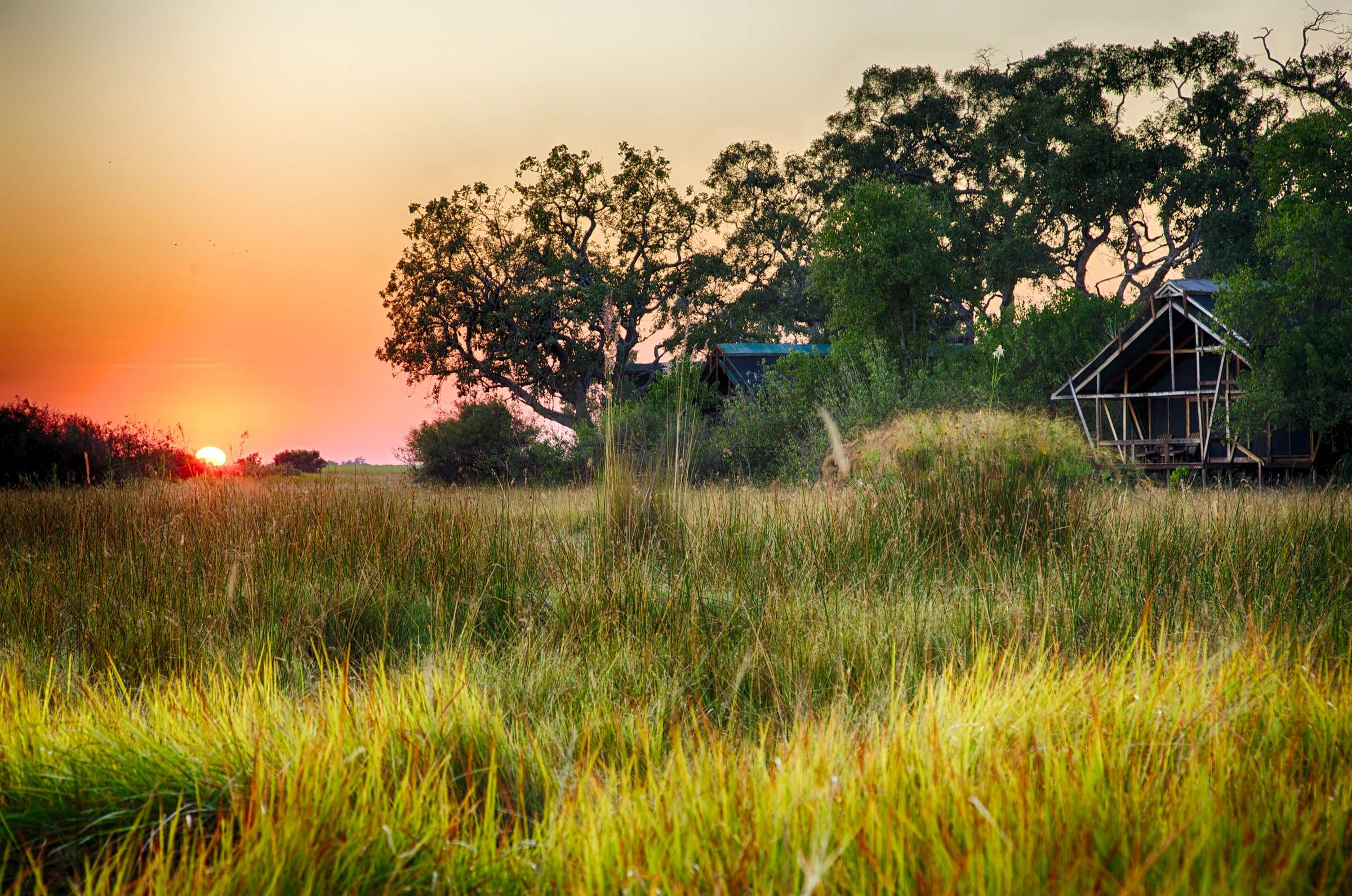
Lebala Camp
With enthusiastic guides and trackers, Lebala – in a vast private reserve – is particularly well-placed for seeking wild dogs.
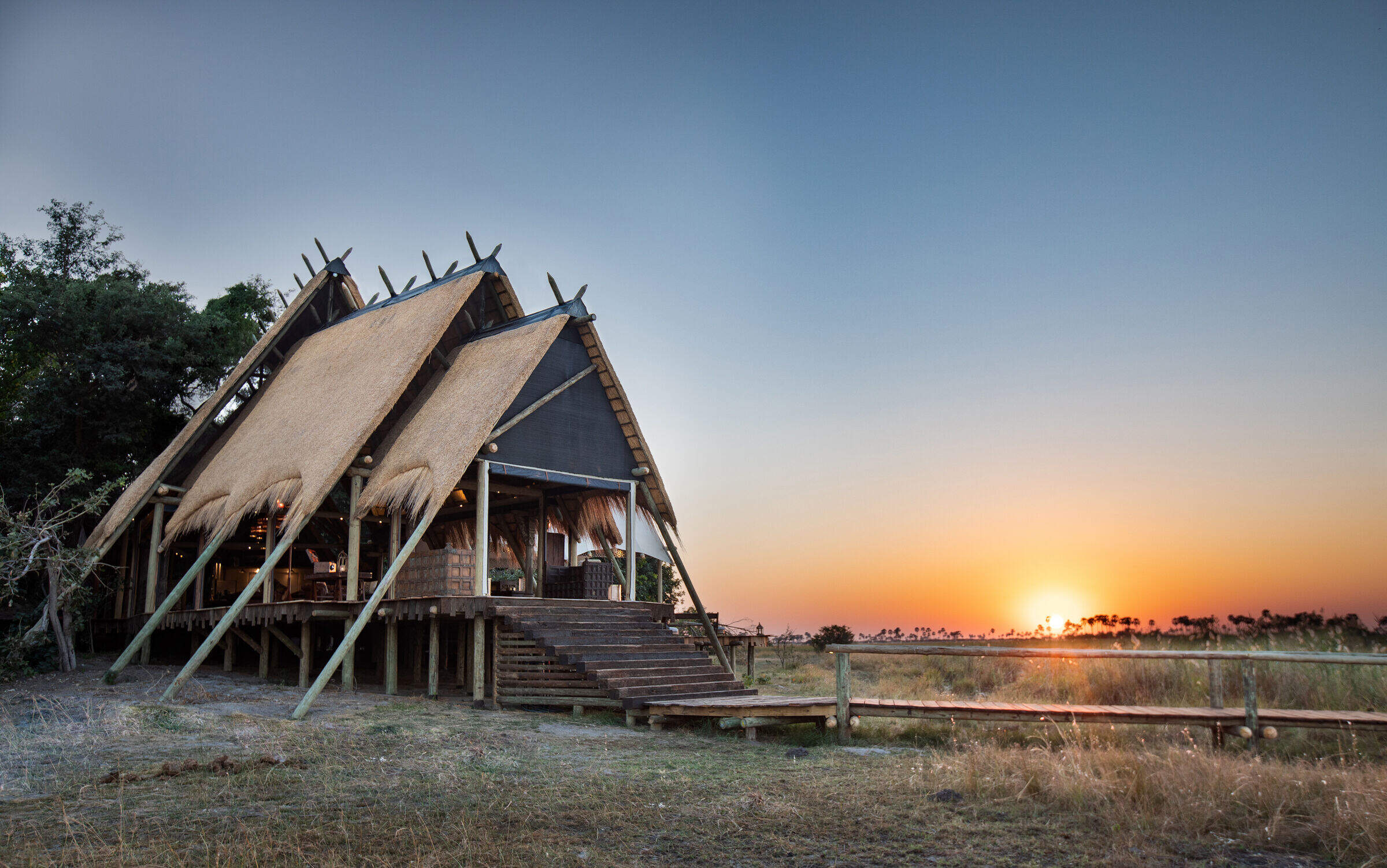
Selinda Camp
In an attractive area that is particularly rich in game between June and November, the luxurious Selinda Camp caters particularly well for photographers.
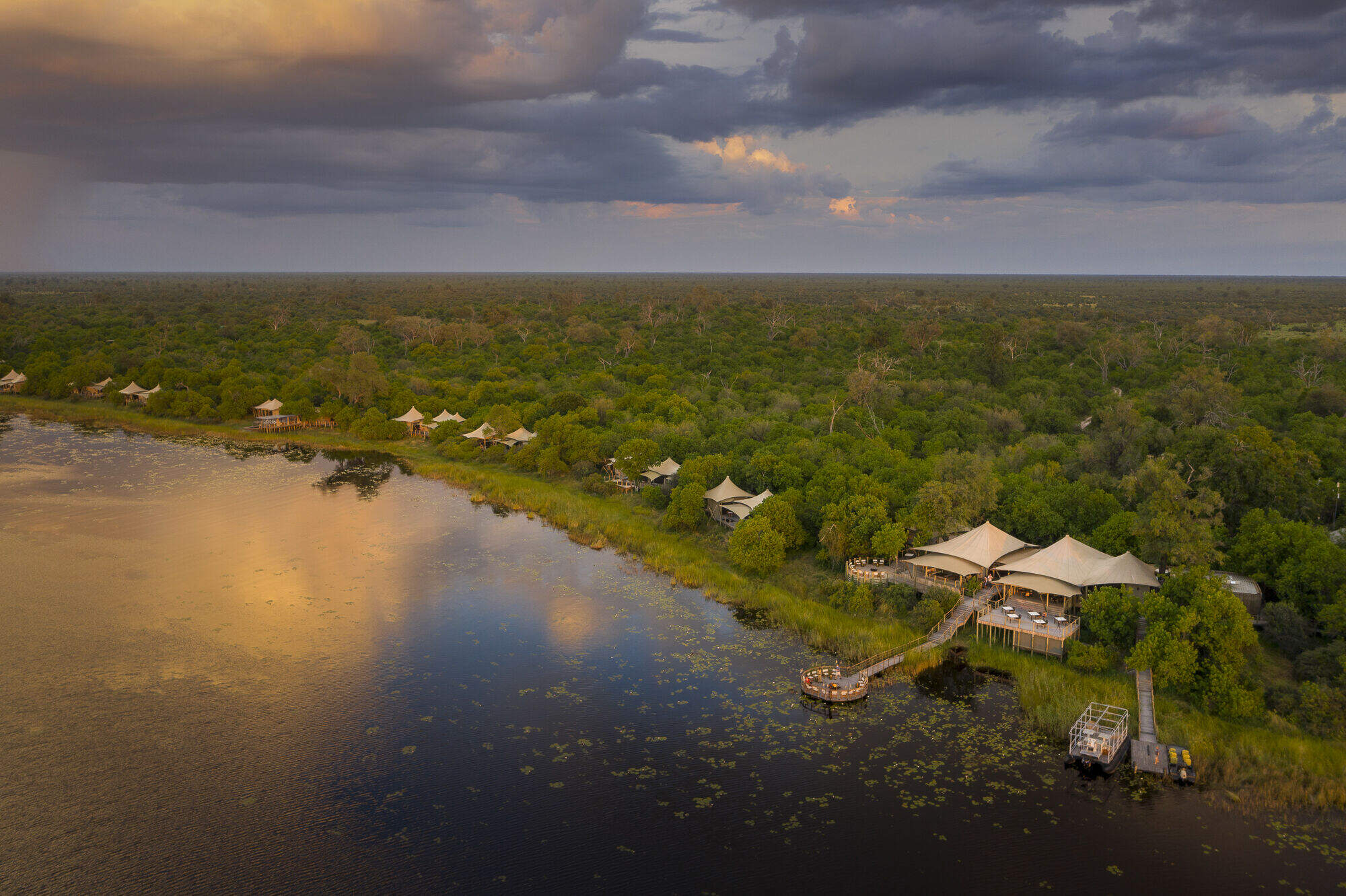
DumaTau
DumaTau, in the private Linyanti Reserve, offers game drives, seasonal boat cruises and walks. Wildlife safaris here are quite seasonal, and are at their best during the height of the dry season, between June and October.
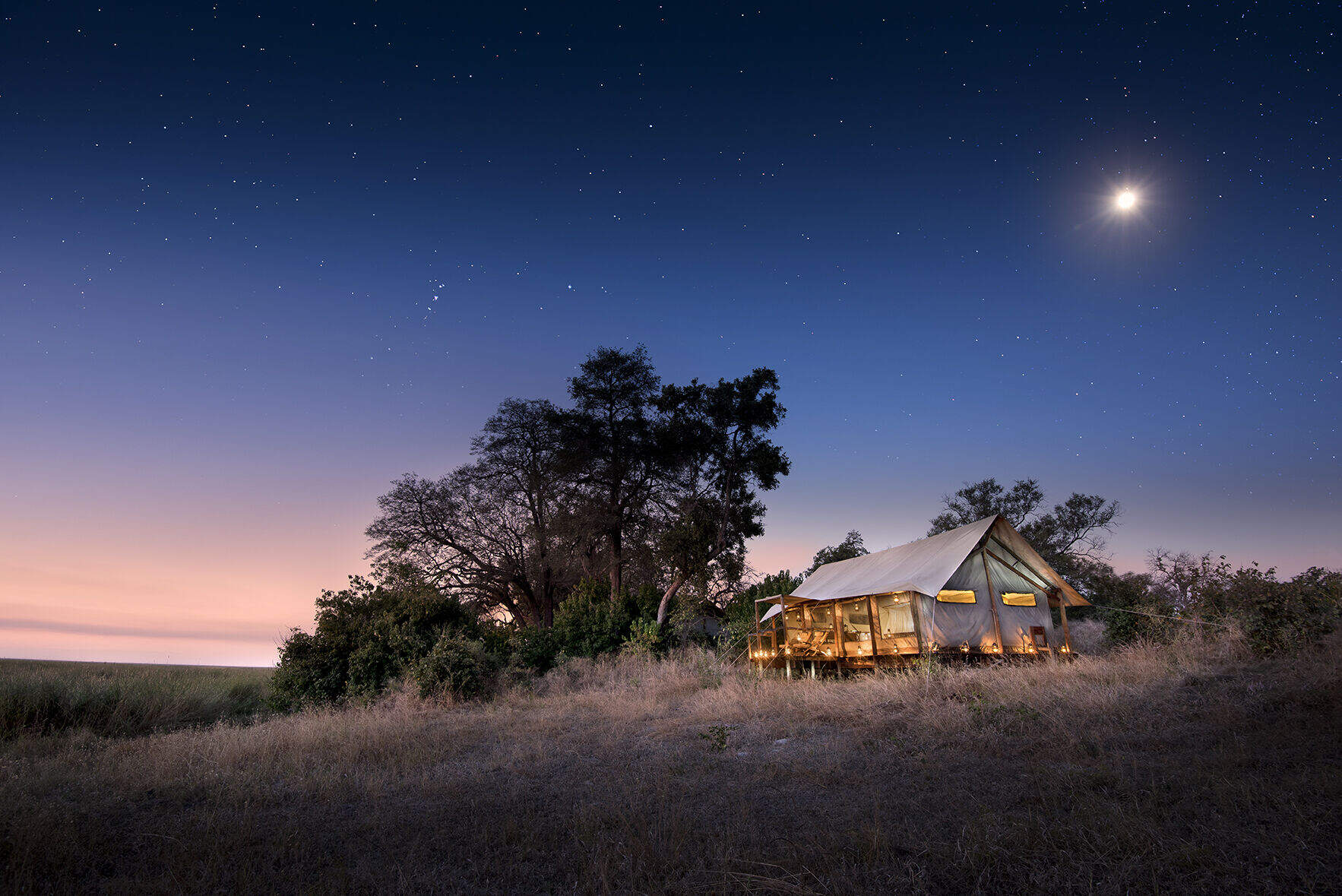
Linyanti Bush Camp
An increasingly rare find in Botswana, Linyanti Bush Camp blends relative simplicity with numerous activities and very good guiding.
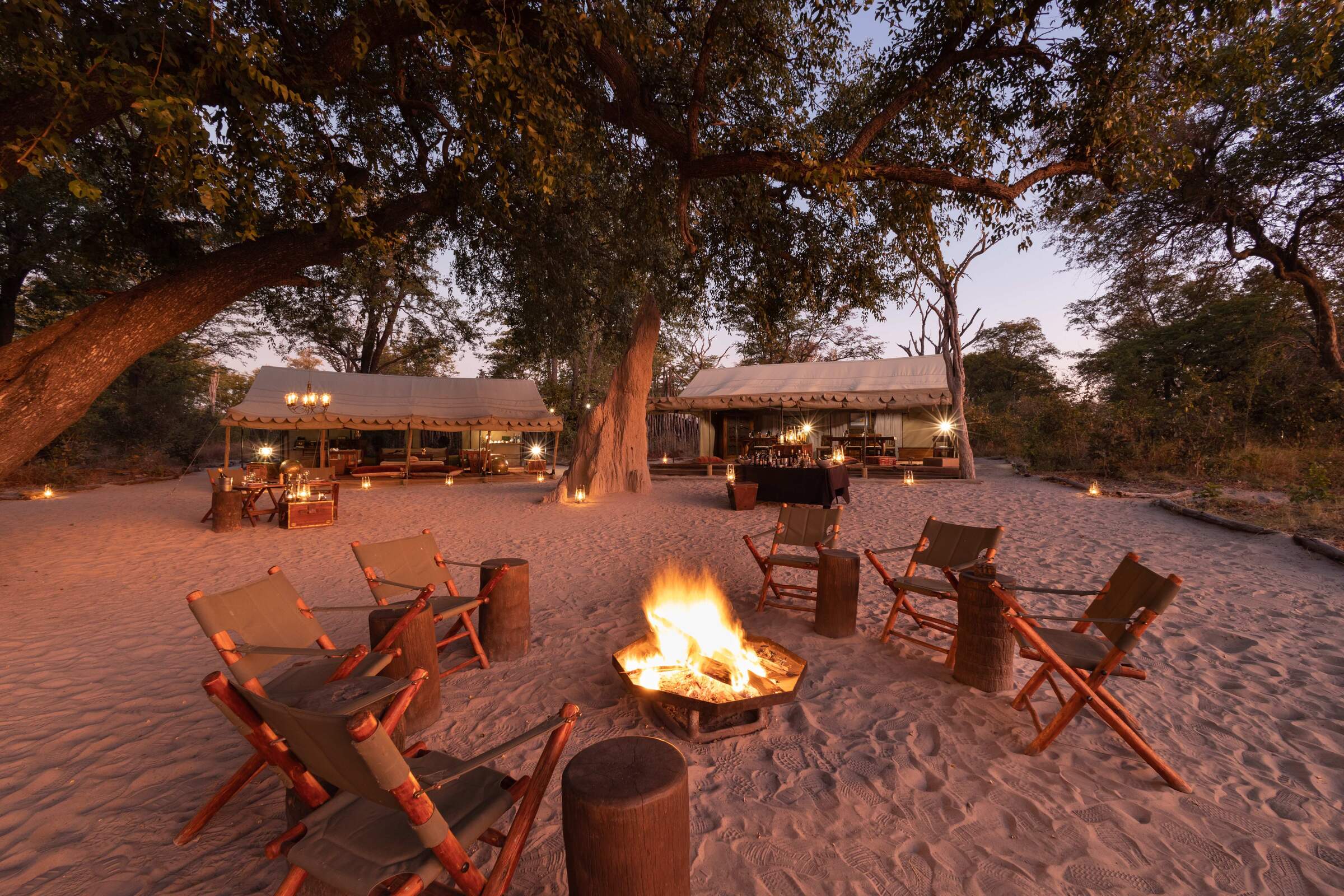
Selinda Explorers Camp
The luxurious, traditional tented Selinda Explorers Camp offers a mix of walking, canoeing and game drives led by really top notch guides in a game-rich area.
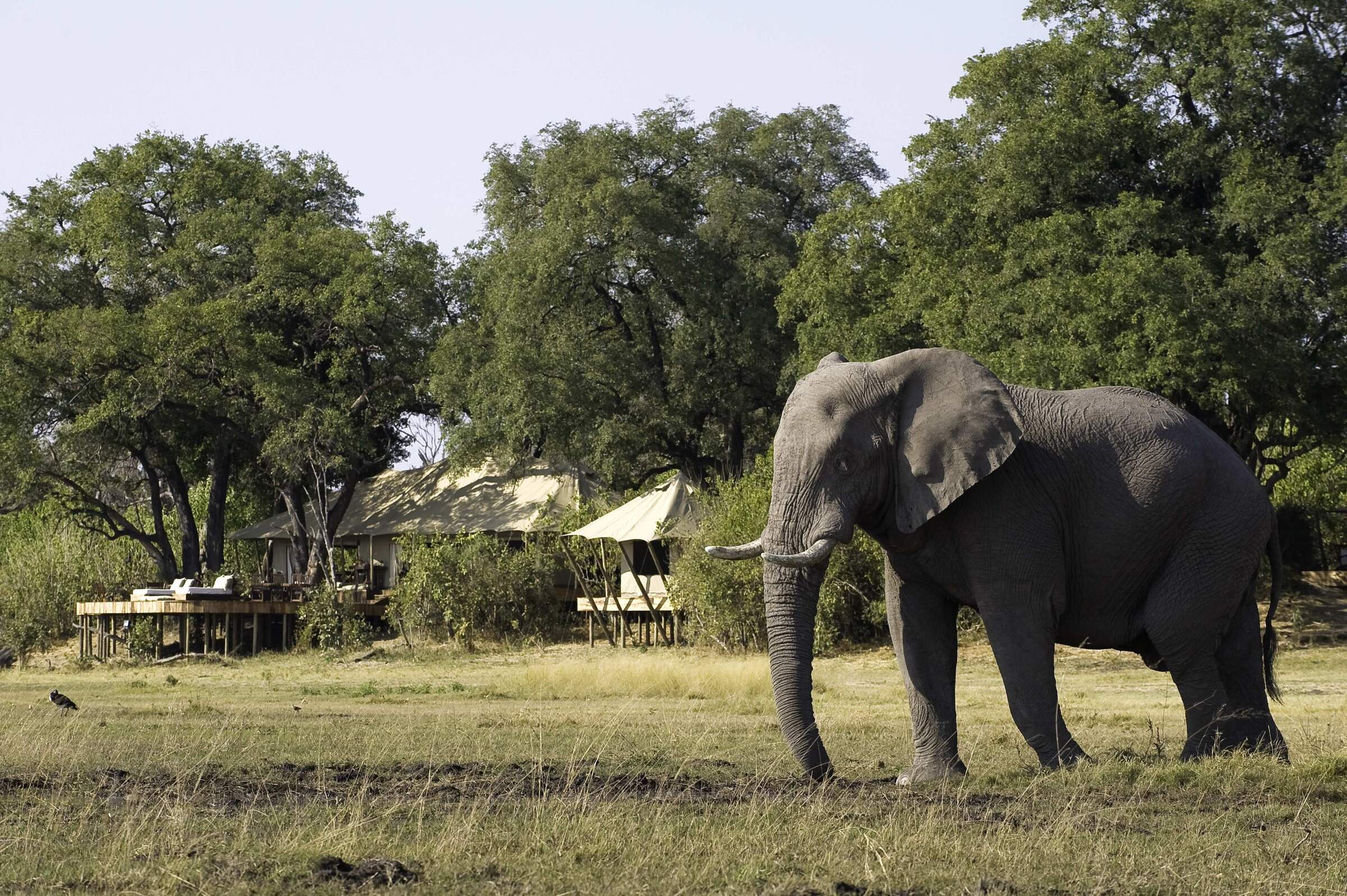
Zarafa Camp
Zarafa is an exclusive camp overlooking the scenic Zibadianja Lagoon within the Selinda Reserve, a particularly game-rich area between June and early November.
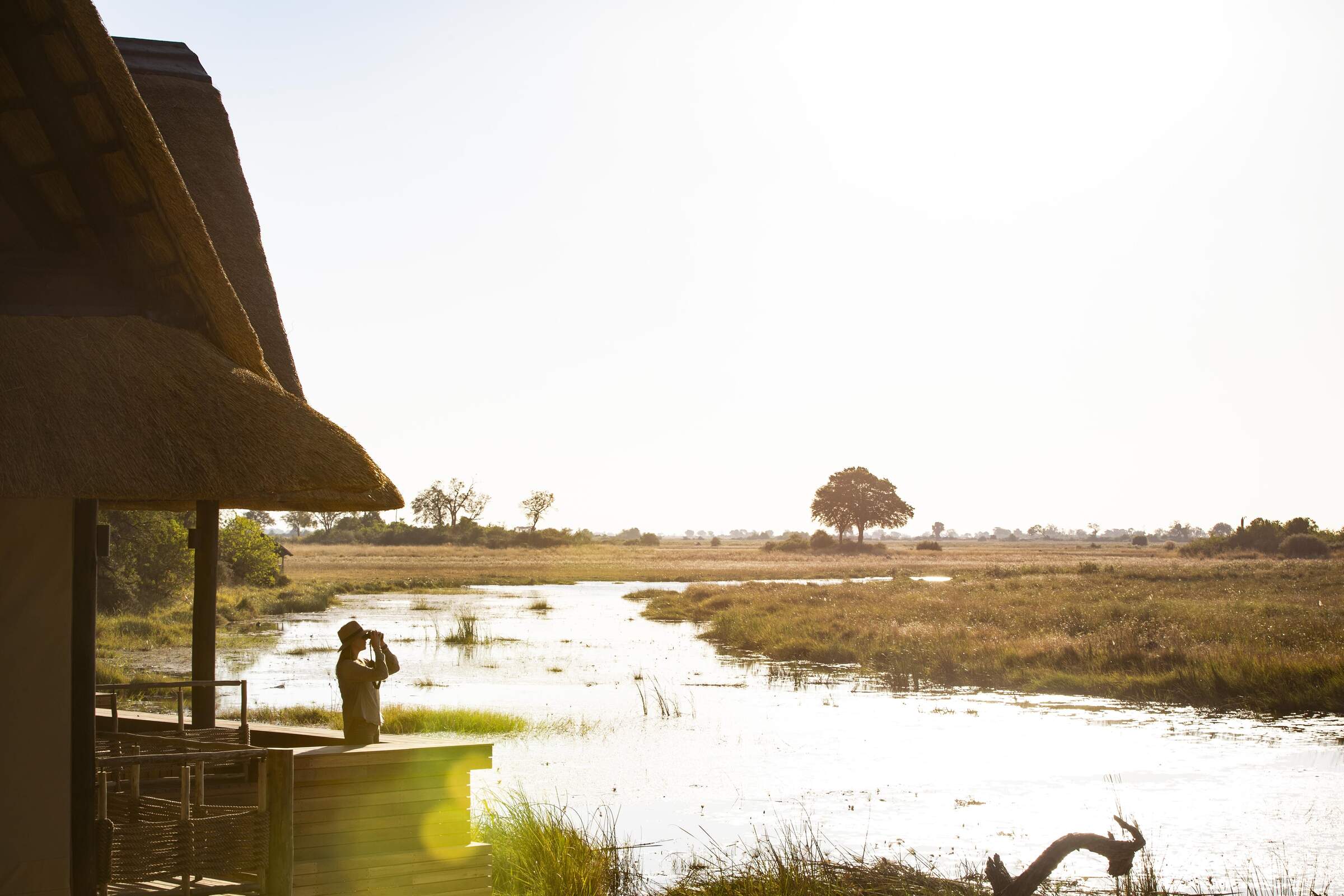
Kings Pool
King’s Pool is a top-end luxury safari camp with a price tag to match; the game viewing can be very good during the dry season.
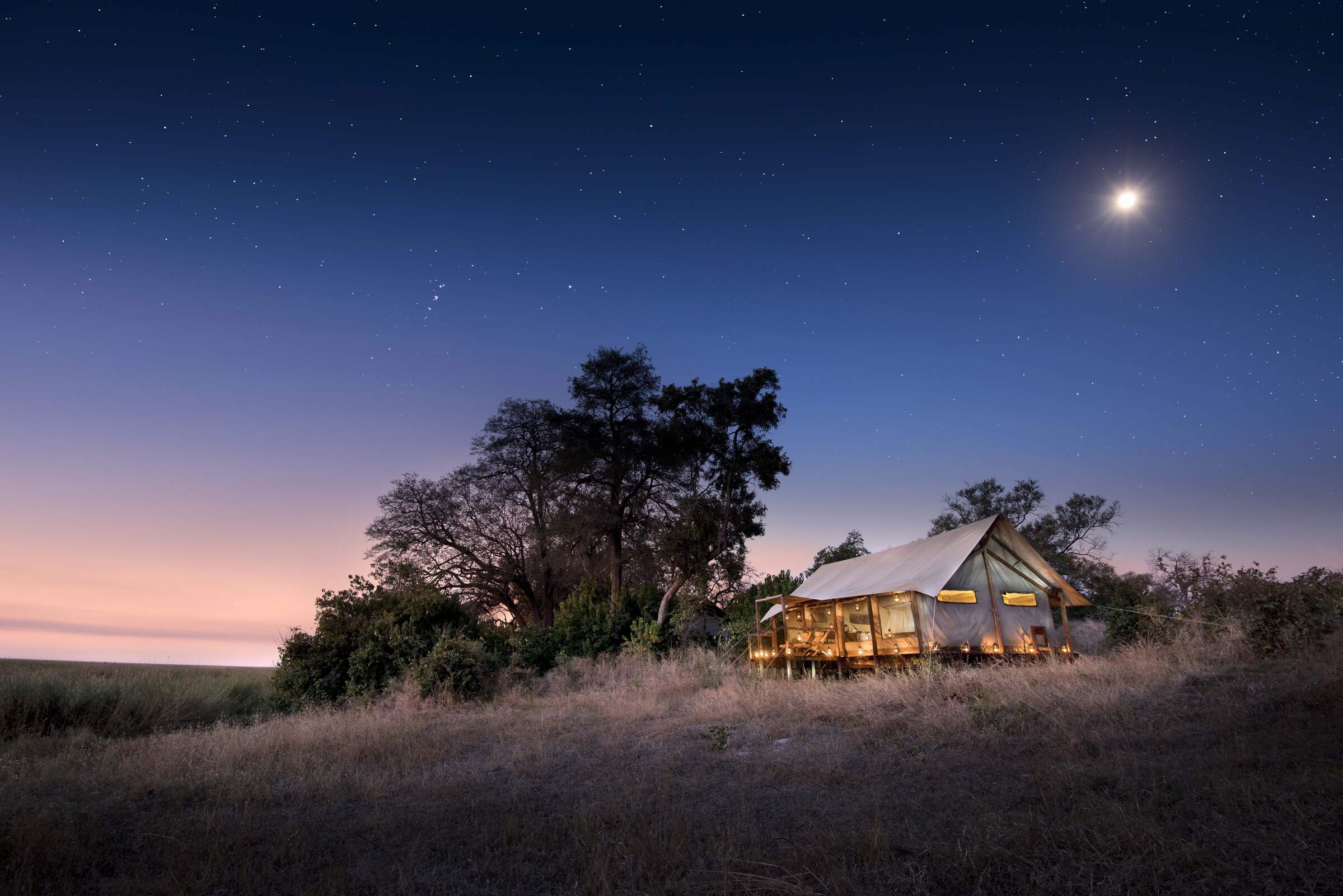
Linyanti Ebony
Independently owned and run, the small Linyanti Ebony sits on the same site as Linyanti Bush Camp, with similarly high standards of guiding, and a strong emphasis on the wildlife experience.
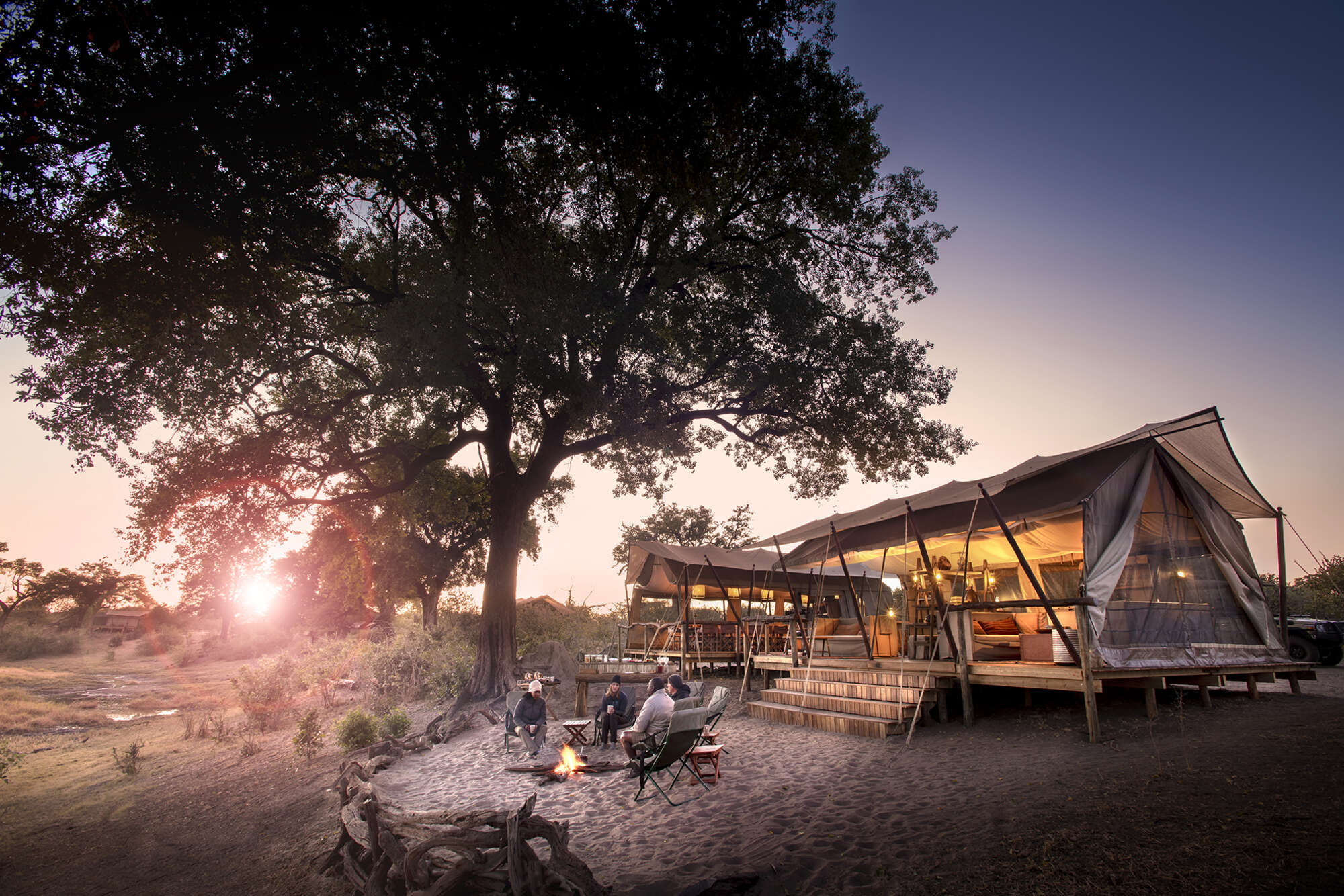
Linyanti Expeditions
Tip-top guiding. In tune with the habitat. Down-to-earth, authentic camp comfort. A place of wilderness safari harmony.
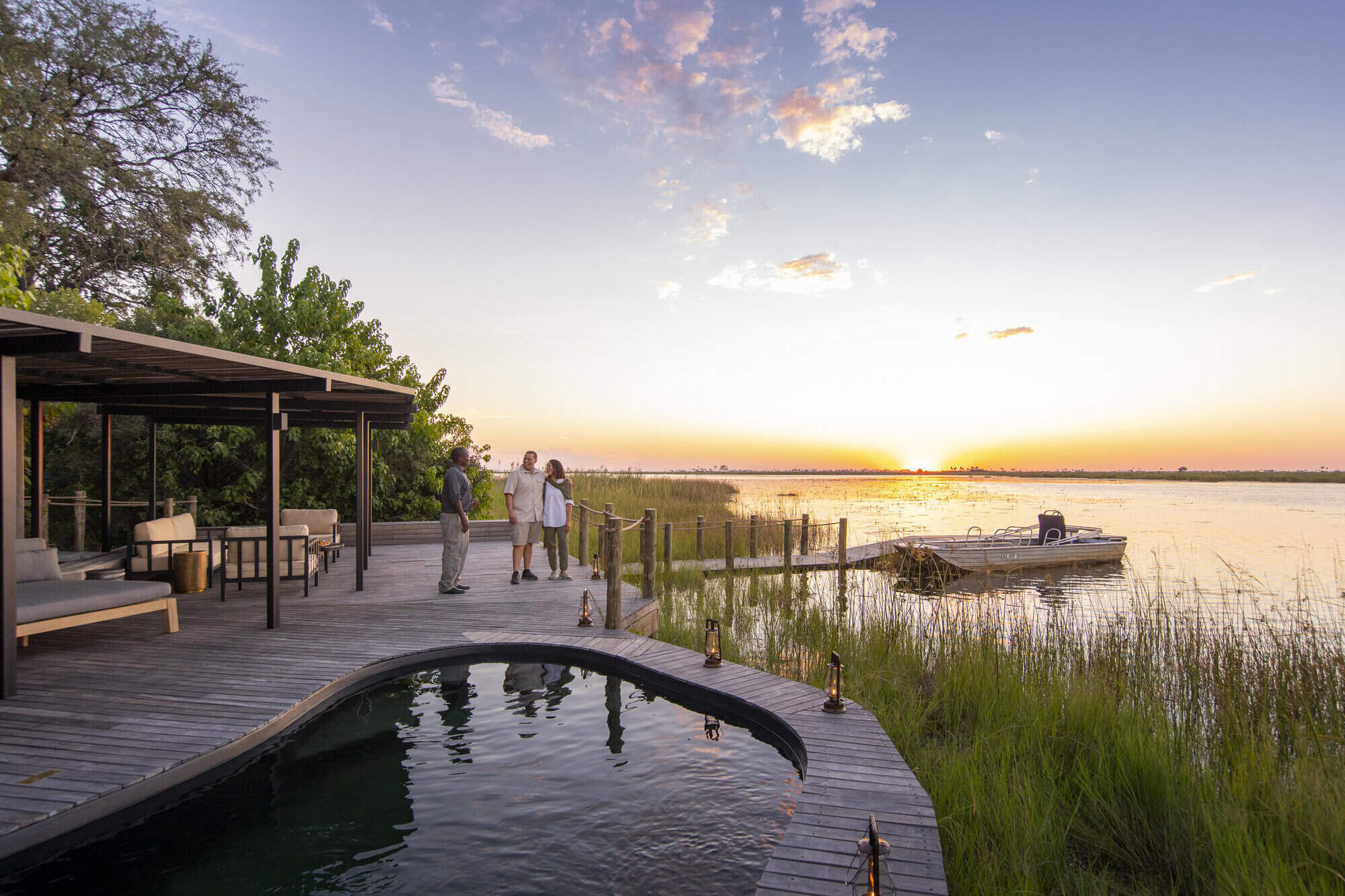
Little DumaTau
Small and sophisticated, Little DumaTau lies adjacent to its larger sibling in the private Linyanti Reserve, overlooking a beautiful lagoon.
When to go to Kwando-Linyanti area
Our month by month guide: What it's like to visit Savuti Camp in Kwando-Linyanti area
Jan
Feb
Mar
Apr
May
Jun
Jul
Aug
Sep
Oct
Nov
Dec
Kwando-Linyanti area in January
January marks the peak of the rainy season in the Kwando, Linyanti, and Selinda Reserves. Evening thunderstorms bring short but intense rains, cooling the air while temperatures remain warm. Wildlife disperses across the lush landscape due to the abundant water, making game viewing more challenging, though the southern and western parts of the Selinda Reserve still offer rewarding sightings.
The Kwando River and Linyanti floodplains attract water-loving species such as red lechwe, sitatunga, and waterbuck. Migratory birds thrive during this time, offering incredible birdwatching opportunities. The vibrant greenery creates stunning photography backdrops, and lower rates make January a great choice for budget-conscious travellers seeking a quieter, greener safari.
- Warm temperatures with occasional thunderstorms
- Spectacular birdlife, including migratory species
- Wildlife dispersed across lush floodplains
- Zebra and wildebeest migration in full swing
- Good availability at lodges and camps
Our view
A good time to visit, with pros & cons
Weather in January
Kwando-Linyanti area in February
February continues the rainy season with heavy rains and a humid atmosphere. The landscape is vibrant and teeming with life. Insects and smaller animals become more visible, while many species are raising their young, making for fascinating wildlife encounters. The Selinda Spillway and Zibadianja Lagoon are magnets for diverse wildlife during this time.
Thick vegetation and tall grasses can make it harder to spot larger animals, but water-based activities like boat cruises along the Kwando and Linyanti rivers offer superb birdwatching. The reserves’ papyrus reed-beds are home to elusive species like sitatunga, while buffalo and elephants frequent the floodplains. With fewer visitors, February is perfect for those looking for a more intimate safari experience.
- Warm with occasional thunderstorms
- Young animals abundant across the reserves
- Dispersed wildlife across the lush terrain
- Birds thriving, many in breeding plumage
- Excellent camp availability and low visitor numbers
Our view
This is not a great time to visit
Weather in February
Kwando-Linyanti area in March
March marks the tail end of the rainy season, with sunny days becoming more frequent and occasional afternoon thunderstorms still sweeping through. The landscape remains lush, with many animals finishing raising their young. Predators like lions and wild dogs are more active, taking advantage of plentiful prey.
Birdwatching is still rewarding, although some migratory species start to leave as the season progresses. The Kwando River and its channels provide excellent fishing and wildlife viewing opportunities. As the rains taper off, game drives become more productive, particularly in open areas of the reserves.
- Variable weather with clearer skies and rains decreasing
- Wildlife well-fed and thriving in lush surroundings
- Birdlife remains spectacular, though migrants begin to leave
- Lower rates and fewer visitors at camps
Our view
A good time to visit, with pros & cons
Weather in March
Kwando-Linyanti area in April
April is a transitional month in the Kwando, Linyanti, and Selinda Reserves, marking the shift from the wet to dry season. Rainfall becomes less frequent, giving way to clear skies and a verdant landscape. Night temperatures start to drop, especially in areas further from water.
As vegetation begins to thin, wildlife viewing improves, with increased predator-prey activity around water sources. The Selinda Spillway becomes a focal point for diverse wildlife, including elephants, buffalo, and various antelope species. Predator activity starts to become more visible, particularly around permanent water sources. Walking safaris and boat cruises offer unique ways to explore the ecosystem. With the shoulder season starting, April provides good value and a mix of lush scenery and growing wildlife activity.
- Cooler evenings with occasional light rain
- Selinda Spillway ideal for diverse wildlife sightings
- Good predator-prey interactions observable
- Excellent conditions for walking safaris and boat trips
- Shoulder season rates make this a popular month
Our view
A good time to visit, with pros & cons
Weather in April
Kwando-Linyanti area in May
May is one of the best months to visit the Kwando, Linyanti, and Selinda Reserves. With almost no rain, temperatures cool further in the mornings and evenings, increasing predator activity. Wildlife begins to concentrate around permanent water sources like the Linyanti and Kwando rivers, providing superb game viewing opportunities, especially of elephants and buffalo.
The Selinda Reserve’s diverse landscapes attract a variety of species, and walking safaris in the Kwando Reserve provide close-up wildlife encounters. Crisp, clear air enhances photography, capturing the vibrant wildlife and scenic beauty. May offers a balance of fantastic wildlife sightings, pleasant weather, and the final stretch of shoulder-season rates.
- Cool mornings and evenings, minimal rain
- Excellent predator activity and game viewing
- Crisp air perfect for photography
- Shoulder season rates - availability limited
Our view
A very good time to visit
Weather in May
Kwando-Linyanti area in June
June signals the start of the dry season, with cool mornings and evenings and warm, sunny days. The clear skies and thinning vegetation make this an excellent month for photography and wildlife viewing. As surface water dries up, animals gravitate to permanent water sources like the Kwando and Linyanti rivers, where predators are often seen stalking prey.
Game viewing excels in the Kwando-Linyanti areas, with improved visibility as vegetation thins, and the Selinda Spillway becomes a wildlife hotspot, attracting elephants, buffalo, and other species. Boat cruises provide a peaceful way to observe water-dependent wildlife, while night drives offer glimpses of nocturnal predators and other species. June’s popularity means high demand for camps, so early bookings are essential.
- Warm days, cold nights—ideal safari conditions
- Excellent conditions for wildlife photography
- Animals congregating around water sources
- Vegetation thinning, improving visibility
- Peak season begins with higher rates
Our view
Fantastic: the very best time to visit
Weather in June
Kwando-Linyanti area in July
July offers excellent game viewing conditions. Cool mornings and evenings are ideal for wildlife activity. The landscape is drier, concentrating animals around remaining water sources. The Kwando and Linyanti rivers become crucial for wildlife, attracting large herds of elephants and buffalo. Predator sightings increase, especially around waterholes. The Selinda Reserve's diverse habitats support a wide range of species, from big cats to rare antelopes.
It's one of the best months for walking safaris - cool and fresh in the mornings, with thinning vegetation enhancing visibility. Boat cruises provide serene views of the rivers and their surrounding wildlife. Night drives reveal fascinating nocturnal species, though temperatures can be chilly, so warm clothing is essential. July's popularity means camps are often fully booked, so early reservations are essential.
- Comfortable days, cold mornings and nights
- Excellent game viewing around waterholes and rivers
- Walking safaris and boat cruises highly recommended
- Peak season with camps often fully booked
Our view
Fantastic: the very best time to visit
Weather in July
Kwando-Linyanti area in August
August is a peak safari month, with warm days and cool nights offering comfortable conditions. Wildlife is highly concentrated around water sources, providing exceptional game viewing. The Selinda Spillway becomes a focal point for predators and prey, with frequent sightings of elephants, buffalo, and big cats.
Boat cruises along the Kwando and Linyanti rivers offer a unique perspective on the reserves’ wildlife, while clear skies make for incredible stargazing at night – but it’s cold so bring warm clothes, hats and gloves. August's popularity for northern hemisphere travellers means limited availability and higher rates at most camps.
- Dry, warm days with cool nights
- Wildlife activity peaks around water sources
- Okavango floods usually reach Selinda Spillway
- Super stargazing on clear nights
- High rates and limited availability in camps
Our view
Fantastic: the very best time to visit
Weather in August
Kwando-Linyanti area in September
September is a favourite for wildlife enthusiasts, with probably the best wildlife viewing of the year. Daytime temperatures are warming, but nights remain cool. The dry landscape concentrates wildlife around permanent water sources like the Kwando and Linyanti rivers, and along the Selinda Spillway. Large herds of elephants and buffalo are common on the floodplains, and predator sightings increase, with higher chances of witnessing dramatic hunting interactions.
The return of migratory birds like carmine bee-eaters adds a splash of colour to the reserves, enhancing birdwatching. The dry, hazy conditions create dramatic sunsets, while boat cruises and game drives offer rewarding, laid-back wildlife encounters. September’s popularity means high rates and limited availability at most camps, with early booking is essential.
- Warm days, cool nights—prime safari weather
- Exceptional wildlife viewing and predator activity
- Stunning sunsets and excellent birdwatching
- High season continues with limited availability
Our view
Fantastic: the very best time to visit
Weather in September
Kwando-Linyanti area in October
October is the hottest and driest month in these reserves, creating some of the most concentrated and dramatic wildlife sightings of the year. Animals gather around dwindling water sources, leading to intense predator-prey interactions. The Selinda Spillway becomes a lifeline for both herbivores and carnivores.
Boat cruises offer relief from the heat and a chance to observe water-dependent species. Migratory birds continue to arrive, adding vibrancy to the parched landscape. The clear, hazy conditions create spectacular photographic opportunities, particularly at sunset. Night drives are not nearly so cold and can reveal fascinating nocturnal activities. Despite the daytime heat, October remains a favourite for game viewing.
- Hot days, with chances of rain late in the month
- Outstanding big game sightings around limited water sources
- Excellent birdwatching with arriving migrants
- Water activities limited as floods recede
- Final month of peak season - high demand at camps
Our view
Fantastic: the very best time to visit
Weather in October
Kwando-Linyanti area in November
Sometime in November usually marks the start of the green season as temperatures and humidity rise, leading to the first dramatic thunderstorms. The landscape begins to transform, with fresh greenery spreading across the reserves. Wildlife starts to disperse as waterholes refill, but predator sightings remain good near permanent water sources. The Kwando and Linyanti rivers remain important for the large herds of elephants, and the Selinda Spillway continues to attract wildlife.
This is a fantastic time for birdwatching, with migratory species arriving in abundance. Where available, boat cruises highlight the changing environment, while game drives still offer rewarding wildlife encounters. Early November sees lower rates, making it a good choice for travellers seeking great game viewing at lower rates.
- Hot days with increasing humidity and dramatic thunderstorms
- Green season begins transforming landscape
- Wildlife viewing less predictable but rewarding near rivers
- Migratory birds arrive, enhancing birdwatching
- Shoulder season offers lower rates and good availability
Our view
A good time to visit, with pros & cons
Weather in November
Kwando-Linyanti area in December
December marks the height of the rainy season, bringing welcome relief from the high temperatures. While wildlife viewing becomes more challenging due to the dispersal of animals, skilled guides can still uncover remarkable sightings. The Kwando and Linyanti rivers remain vital habitats, and areas such as the Selinda Reserve offer rewarding game viewing, especially around Zibadianja Lagoon.
The landscape undergoes a dramatic transformation as fresh growth attracts herbivores. Migratory birds are plentiful, making this an excellent time for birdwatching. Although predator sightings are less frequent, they are often spectacular against the vibrant, lush scenery. Luxurious camps offer comfortable retreats during occasional rain showers, and lower-season rates make December an appealing choice for value-conscious travellers seeking a green-season safari.
- Warm with frequent rain storms
- Wildlife more dispersed across the reserves
- Green season in full effect, lush landscapes
- Low season rates make it a value-friendly option
Our view
A good time to visit, with pros & cons
Weather in December

Looking for inspiration on where to travel next?
Visit our trip chooser to explore your options and find inspiration for your perfect African adventure
Inspire me